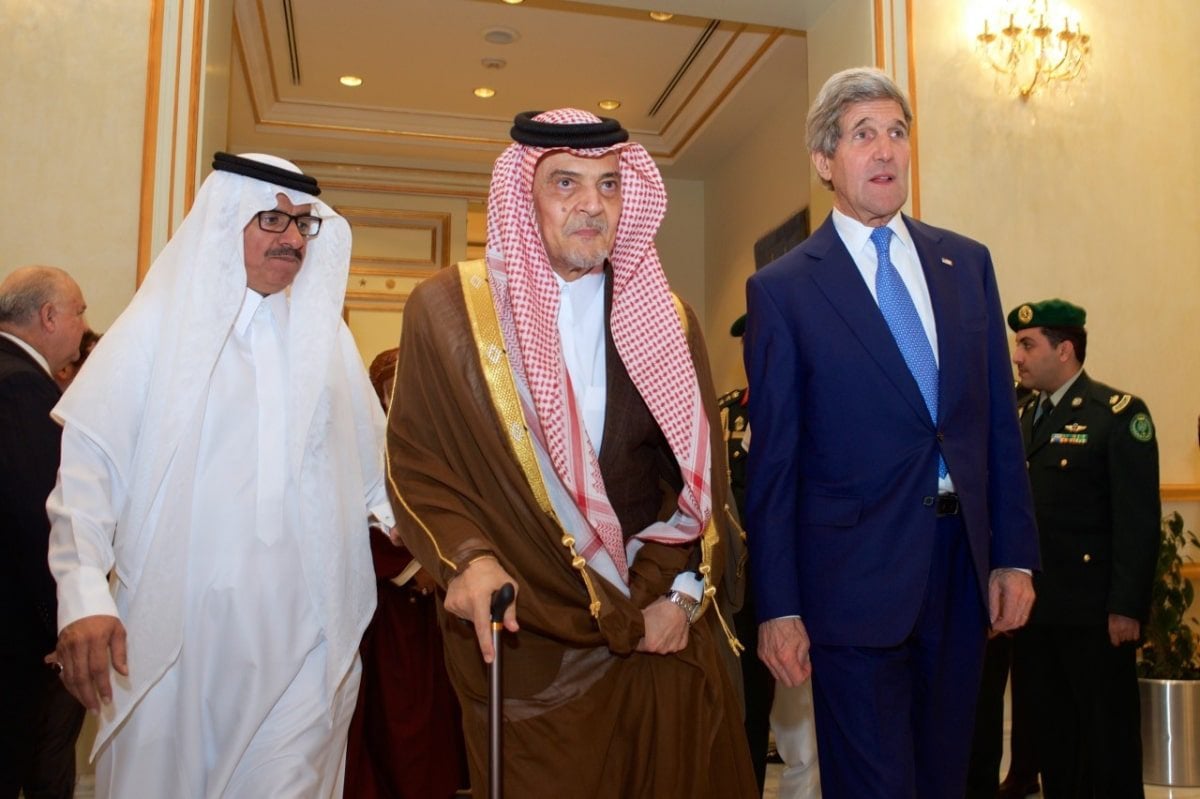
U.S. Secretary of State John Kerry walks with Foreign Minister Saud al-Faisal of Saudi Arabia in Riyadh, Saudi Arabia, before the two attend a meeting of the regional Gulf Cooperation Council, 2 March 2015. Photo CorbisArab countries, specifically those in the Gulf, do not have a unified position on the agreement that Iran and 5+1 countries reached in July 2015 on the future of Tehran’s nuclear programme. Although all the Gulf countries officially welcomed the deal, the positions of their governments varied significantly. Official statements showed that Saudi Arabia and Bahrain are the most worried about the consequences of the nuclear deal. Qatar also has concerns but to a lesser degree. The United Arab Emirates and Oman were the two Gulf countries most welcoming of the deal, followed by Kuwait.
The Saudi position on the nuclear deal is significant, because Saudi Arabia is the largest and most important Gulf state. Despite the Saudi Foreign Ministry’s welcoming of the deal, statements by Saudi officials and figures connected to the ruling Saudi elite in Riyadh demonstrated that the Saudi regime views the deal as a strategic threat…
[fanack_latest_updates content_source=”latest_chronicle” child_of=”46503″ class=”homepage-latest-updates” number=”2″]
International Affairs Special Files
Fanack offers a special file on International Affairs.
[fanack_generic_list content_source=”chronicle” child_of=”46503″ class=”homepage-latest-updates”]

